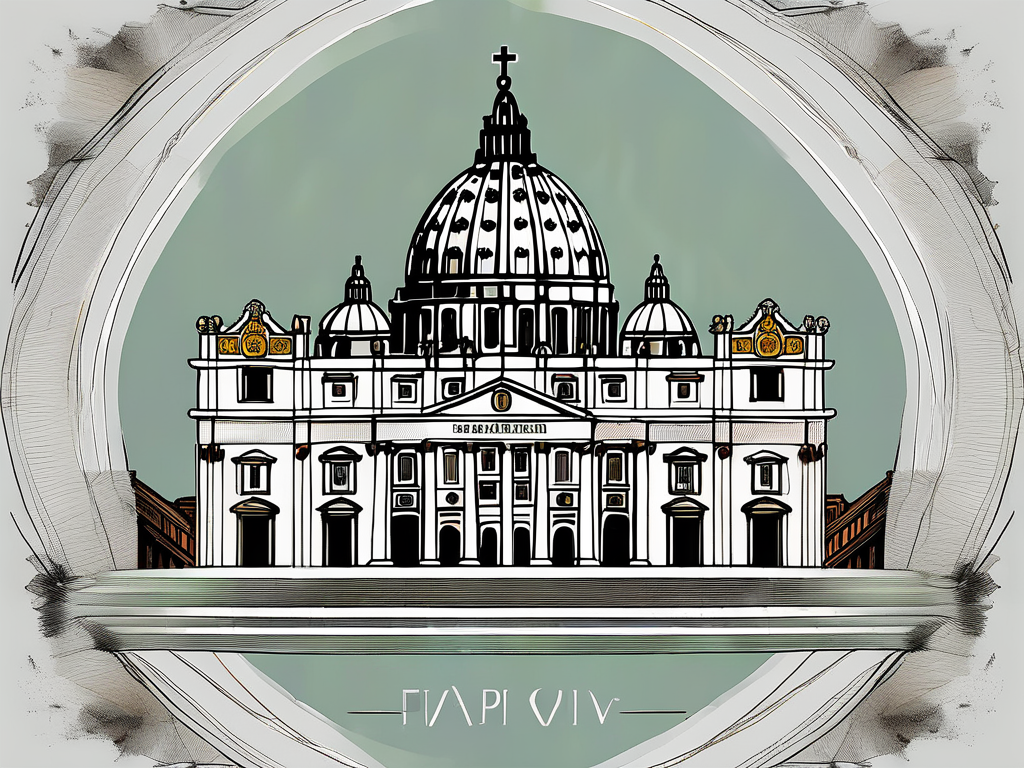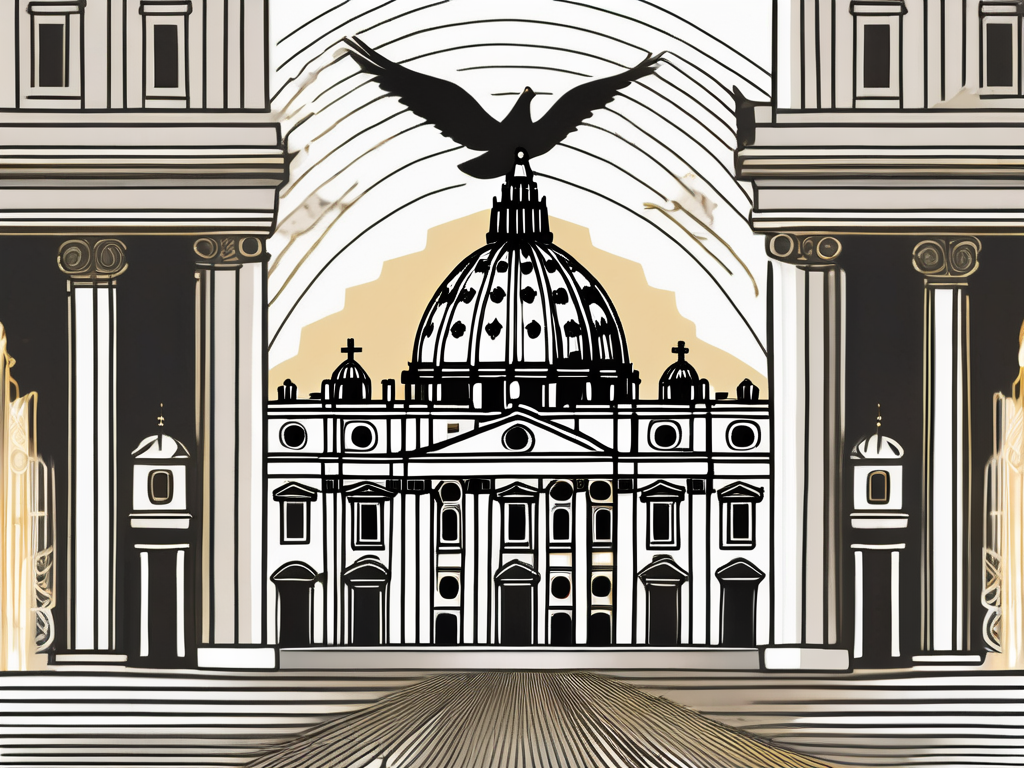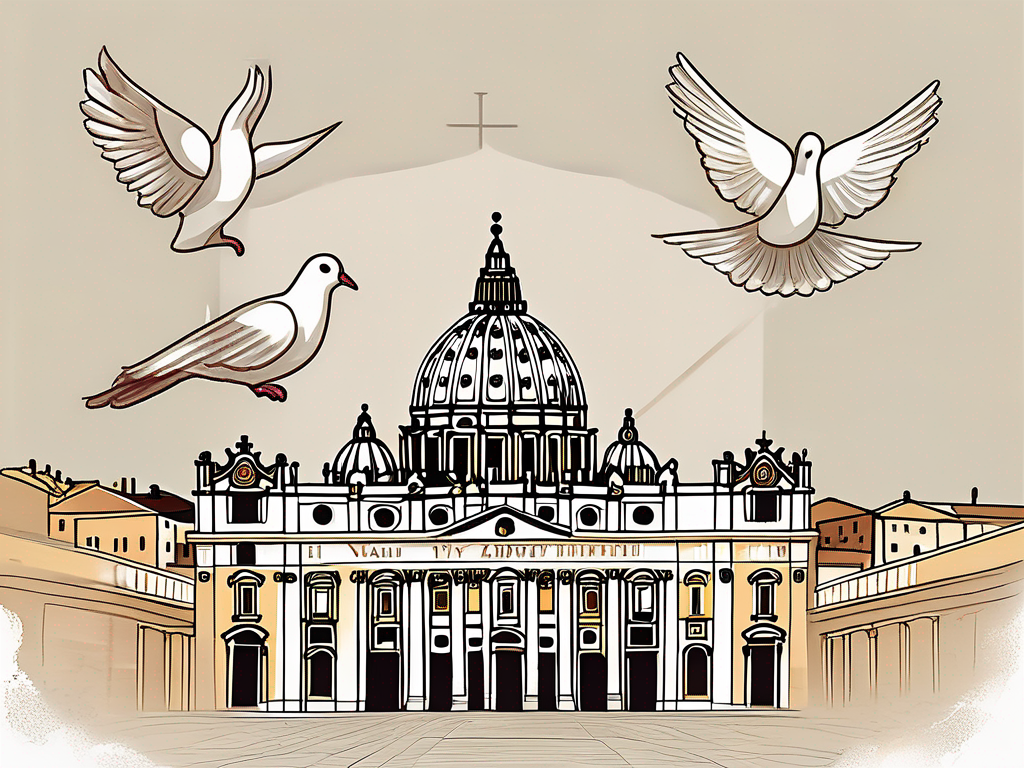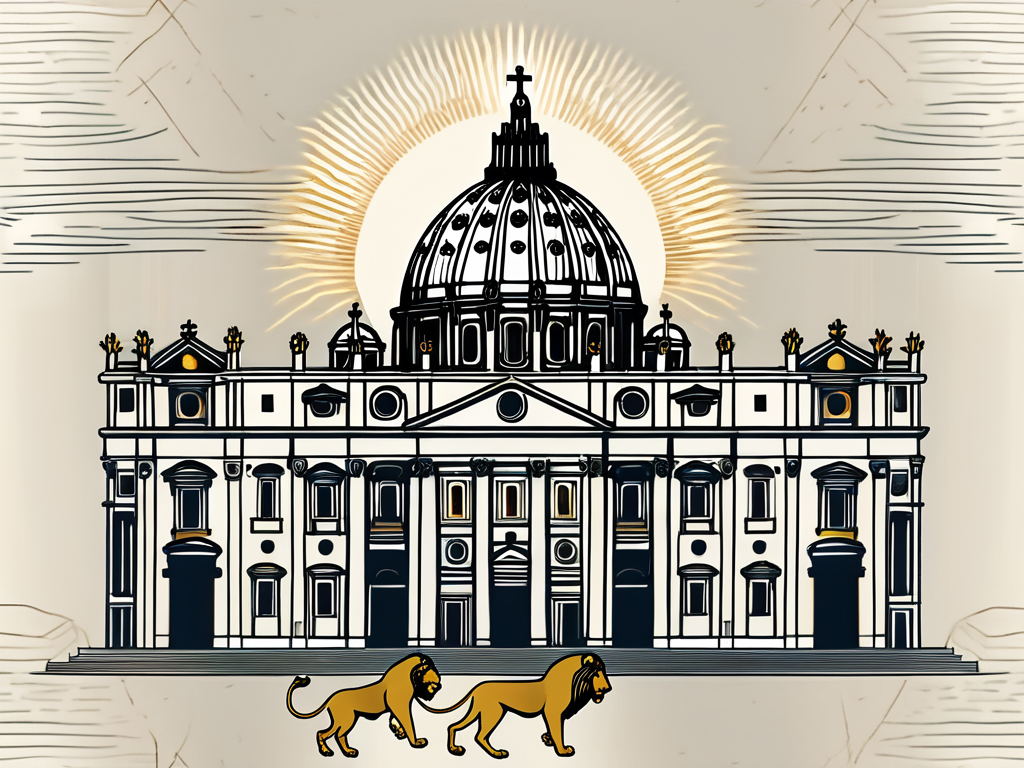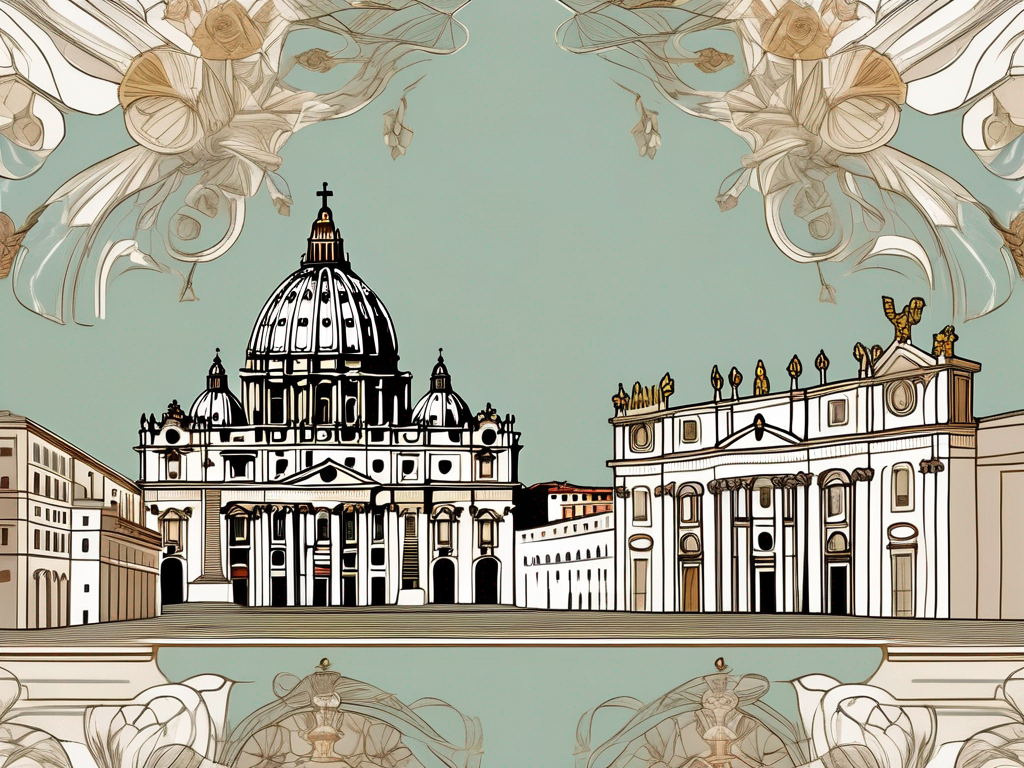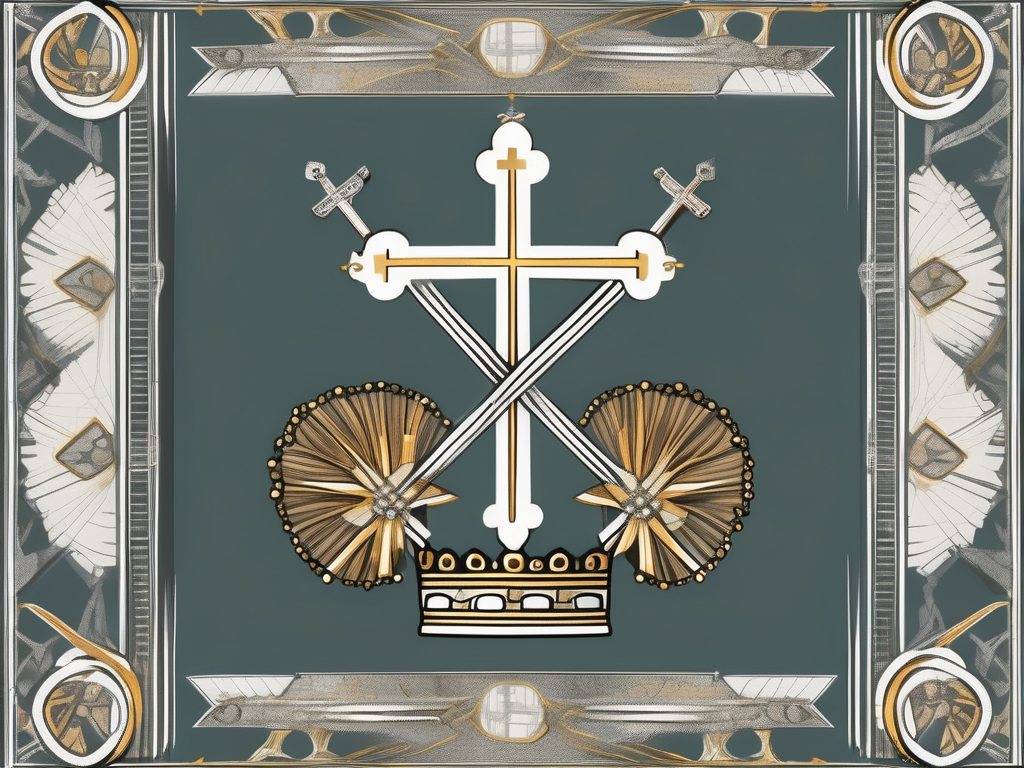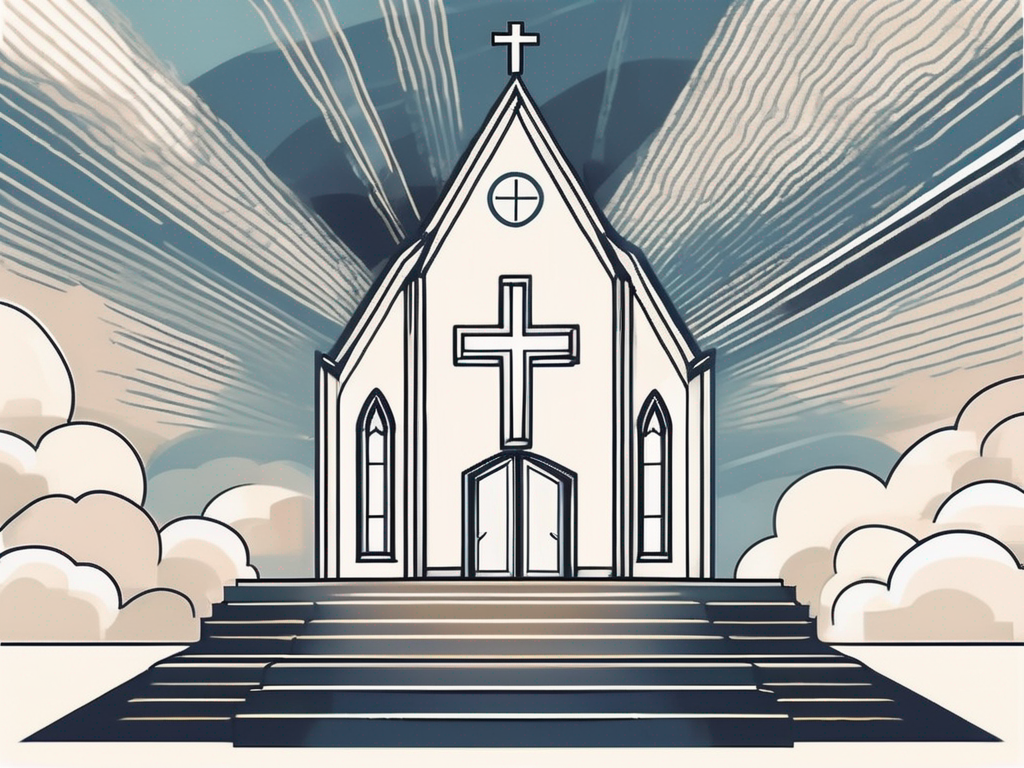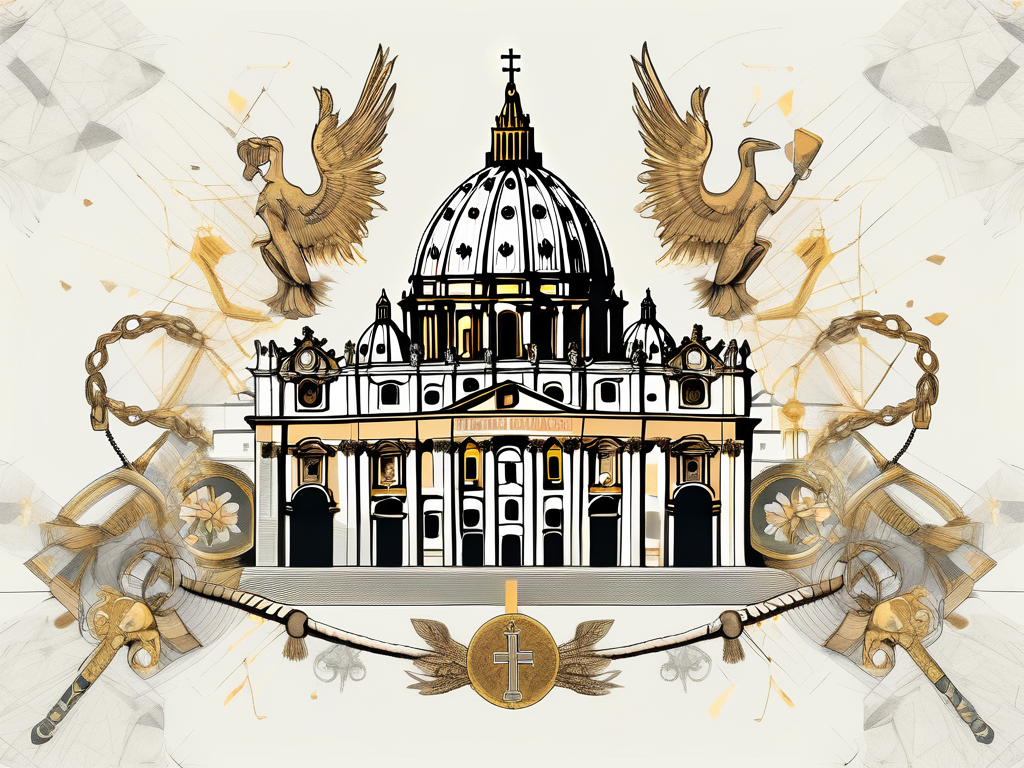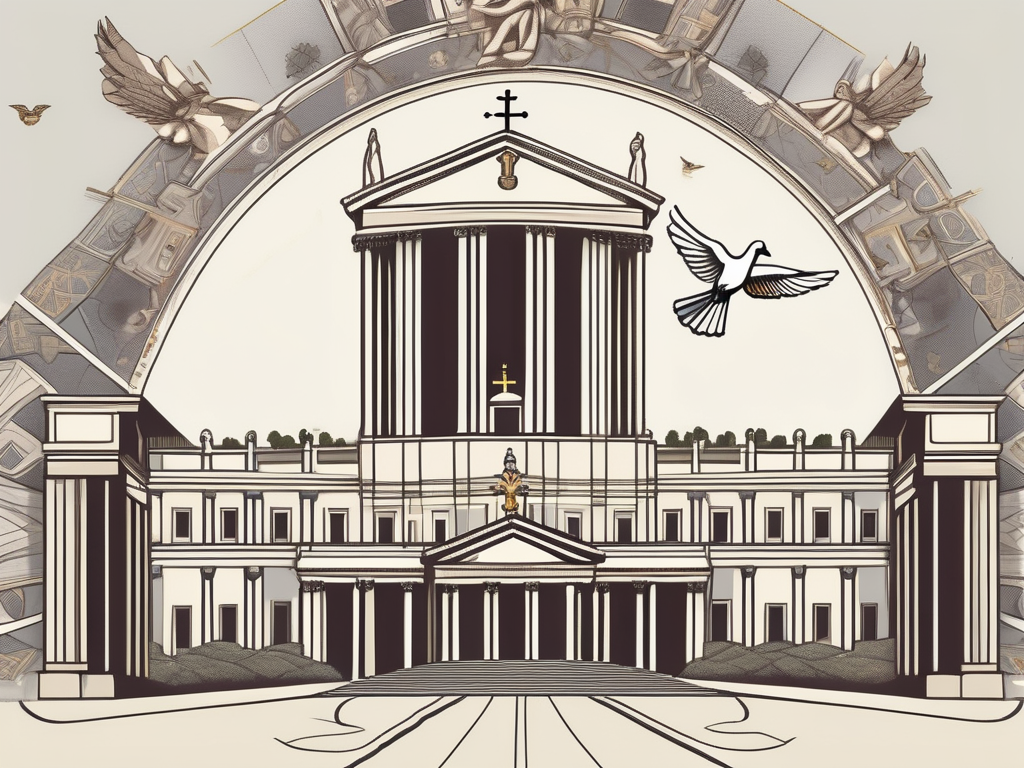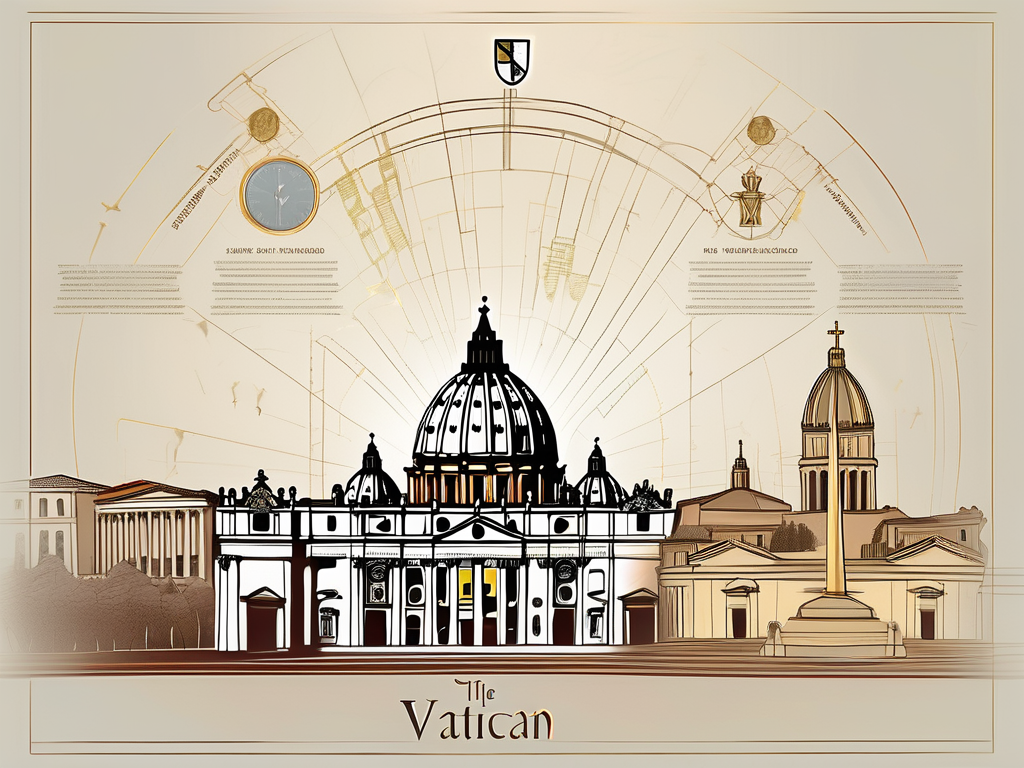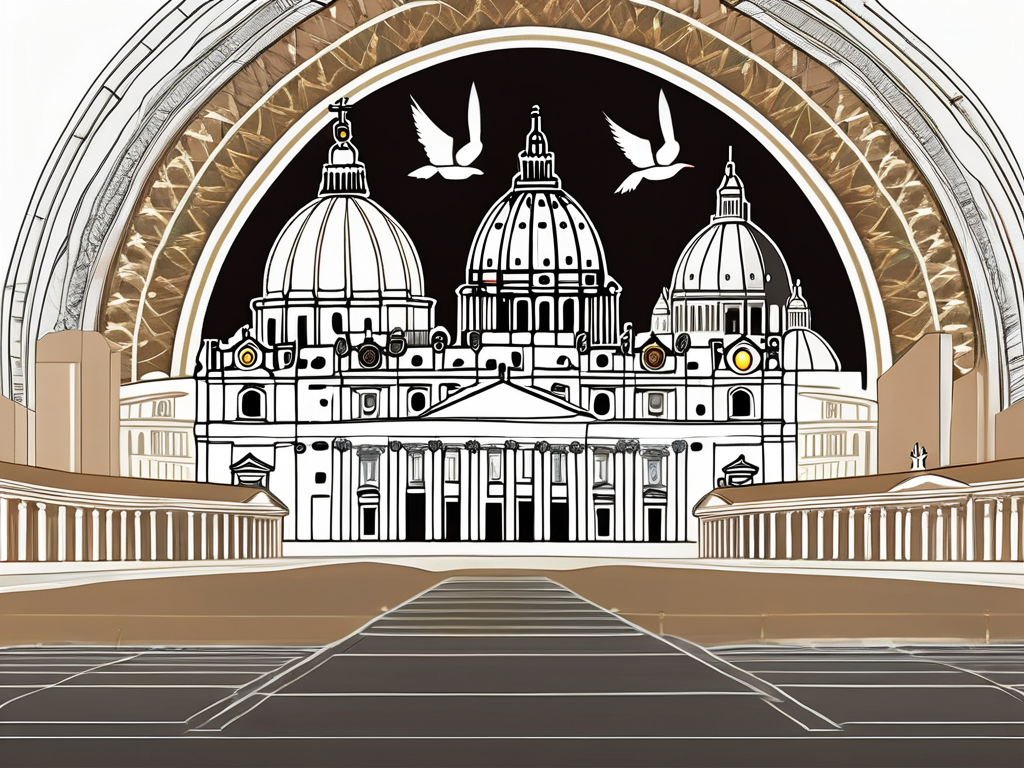Pope Leo V, also known as Leo Quinto, was a prominent figure in the history of the Catholic Church. His life was marked by a series of significant events and actions that left a lasting impact on the Church and the faithful. From his early life and education to his ascension to the papacy, and from his key contributions and policies to the controversies surrounding him, Pope Leo V’s journey was one of both challenge and triumph.
Early Life and Education of Pope Leo V
Leo V, whose birth name was Leonardo Valenti, was born into a humble family with deep-rooted religious beliefs in the small village of San Giovanni. His parents, Maria and Antonio Valenti, were devout Catholics who instilled in him a strong sense of faith and devotion to the Church from an early age.
Growing up in a close-knit community, Leo V was surrounded by the warmth and love of his extended family. His grandparents, who lived nearby, often shared stories of their own encounters with the divine, inspiring the young Leonardo to seek a deeper understanding of his own spirituality.
As a child, Leo V was known for his compassionate nature and his willingness to help others. He would often spend his free time assisting the elderly and the less fortunate in his village, embodying the values of compassion and humility that were instilled in him by his parents.
Leo V’s thirst for knowledge and his desire to serve the Church led him to pursue a religious education. At the age of twelve, he was accepted into the prestigious St. Augustine Seminary, where he would spend the next six years studying theology and philosophy.
Under the guidance of the seminary’s esteemed professors, Leo V delved deep into the teachings and traditions of the Church. He immersed himself in the works of the great theologians and philosophers, such as St. Thomas Aquinas and St. Augustine, developing a profound understanding of the complexities of faith.
During his time at the seminary, Leo V’s dedication and intellectual prowess earned him the admiration of his peers and mentors alike. His insightful contributions to theological discussions and his unwavering commitment to his studies set him apart as a promising young scholar.
Outside of his academic pursuits, Leo V actively participated in various religious activities and community service projects. He volunteered at local orphanages, organizing events and providing support to the children in need. His selflessness and genuine care for others endeared him to the community, further solidifying his reputation as a compassionate and devoted young man.
As Leo V completed his studies at the seminary, he felt a calling to serve the Church in a greater capacity. His years of education had prepared him for the challenges that lay ahead, and he was eager to embark on a journey that would test his faith and shape his destiny.
Ascension to Papacy
Leo V’s election as Pope marked a turning point in his life and in the history of the Church. His installation was met with both excitement and skepticism, as he faced the daunting task of leading the faithful through a rapidly changing world.
Challenges were aplenty during Leo V’s papacy. From internal disputes to external pressures, he navigated a treacherous path, tirelessly working towards ensuring the unity and stability of the Church. Despite these obstacles, Leo V’s unwavering determination and strong leadership qualities allowed him to triumph over adversity and bring about positive change.
One of the most significant challenges that Leo V faced during his papacy was the rise of heretical movements within the Church. These movements, fueled by dissent and differing interpretations of religious doctrine, threatened to divide the faithful and undermine the authority of the papacy. Leo V, recognizing the gravity of the situation, embarked on a mission to address these heresies head-on.
Leo V’s approach to combating heresy was multifaceted. He convened several councils and synods, bringing together bishops and theologians from across the Christian world to discuss and debate the theological issues at hand. Through these gatherings, Leo V sought to promote dialogue and understanding, while also reaffirming the core tenets of the Catholic faith.
In addition to his efforts to combat heresy, Leo V also focused on strengthening the Church’s relationship with secular powers. He recognized the importance of maintaining good relations with rulers and governments, as they played a significant role in shaping the political and social landscape in which the Church operated.
Leo V tirelessly engaged in diplomatic efforts, forging alliances and negotiating treaties that would protect the interests of the Church and its followers. His skillful diplomacy not only ensured the Church’s survival in an increasingly hostile world but also allowed it to thrive and exert its influence on matters beyond the realm of religion.
Furthermore, Leo V was a fervent advocate for social justice and the alleviation of human suffering. He established numerous charitable institutions and initiatives, providing aid and support to the poor, the sick, and the marginalized. His commitment to the principles of compassion and solidarity endeared him to the masses, earning him a reputation as a Pope of the people.
Throughout his papacy, Leo V remained steadfast in his commitment to the Church and its mission. His tireless efforts to combat heresy, strengthen the Church’s relationship with secular powers, and promote social justice left an indelible mark on the history of the papacy. Leo V’s legacy continues to inspire and guide future generations of Church leaders, reminding them of the importance of unwavering faith, strong leadership, and a deep sense of compassion.
Key Contributions and Policies
One of the hallmarks of Leo V’s papacy was his significant theological contributions. He embarked on a mission to enhance the understanding and practice of the faith, emphasizing the importance of spiritual growth and introspection. His teachings resonated with the faithful, inspiring a renewed commitment to their beliefs.
In his theological endeavors, Pope Leo V delved into the intricate nuances of Christian doctrine, exploring the depths of biblical texts and ancient writings. He dedicated countless hours to studying the works of early Church fathers, seeking to uncover hidden truths and shed light on complex theological concepts. His deep understanding of the faith allowed him to articulate profound insights that challenged and enriched the spiritual lives of believers.
Furthermore, Pope Leo V was not content with merely sharing his theological insights within the confines of the Vatican. He recognized the importance of disseminating knowledge and fostering intellectual growth among the clergy and laity alike. To achieve this, he established theological schools and institutes, where aspiring theologians could receive a comprehensive education in Christian doctrine. These institutions became vibrant centers of learning, attracting scholars from far and wide who sought to deepen their understanding of the faith.
Diplomacy was another area where Pope Leo V excelled. He skillfully fostered relationships with foreign leaders, engaging in constructive dialogue and promoting peace and harmony. His efforts in building bridges between different cultures and faiths helped establish a more inclusive and collaborative global community.
Pope Leo V’s diplomatic endeavors extended beyond the realm of religious dialogue. He recognized the importance of addressing social and political issues that plagued societies at the time. With his unwavering commitment to justice and compassion, he advocated for the rights of the marginalized and oppressed, using his influence to bring about positive change.
One of his most notable achievements in the realm of diplomacy was his involvement in mediating conflicts between warring factions. Pope Leo V tirelessly worked to bring about peaceful resolutions, employing his diplomatic skills to bridge divides and foster reconciliation. His efforts were instrumental in preventing further bloodshed and promoting stability in regions torn apart by strife.
Moreover, Pope Leo V was a proponent of interfaith dialogue, recognizing the importance of understanding and respecting different religious traditions. He actively engaged in conversations with leaders of various faiths, seeking common ground and promoting mutual understanding. Through these dialogues, he fostered an atmosphere of respect and tolerance, paving the way for greater cooperation and harmony among different religious communities.
As a result of his diplomatic efforts, Pope Leo V’s papacy witnessed a period of unprecedented collaboration and unity among nations. His visionary leadership and commitment to diplomacy left an indelible mark on the global stage, inspiring future generations to strive for peaceful coexistence and understanding.
Controversies and Criticisms
Like any notable figure, Pope Leo V was not immune to controversies and criticism. He faced disputes and conflicts within the Church, as differing opinions clashed and tensions arose. These challenges tested the strength of his leadership and required him to make difficult decisions that were not always met with unanimous approval.
Public perception and response to his papacy were also mixed. While many revered his contributions and admired his compassion, others were skeptical and voiced their concerns. The public’s varied attitudes towards Leo V highlight the complexity of his legacy and the ongoing debates surrounding his tenure as Pope.
The End of Pope Leo V’s Papacy
The final years of Leo V’s papacy were marked by introspection and reflection. As he faced the inevitability of his mortality, he continued to guide the Church with wisdom and grace. His dedication to his faith remained unwavering until the very end.
After his passing, the question of succession loomed large. The transition from one Pope to another is always a significant moment in the history of the Church, and the aftermath of Leo V’s papacy was no exception. The legacy he left behind served as a guiding light for his successors, influencing the direction of the Church for years to come.
In conclusion, the life and legacy of Pope Leo V left an indelible mark on the Catholic Church. From his early life and education to his ascension to the papacy, his key contributions and policies, and the controversies that surrounded him, Leo V’s journey was characterized by perseverance and a deep commitment to his faith. Despite the challenges he faced, his enduring impact continues to shape the Church and inspire the faithful across the globe.
